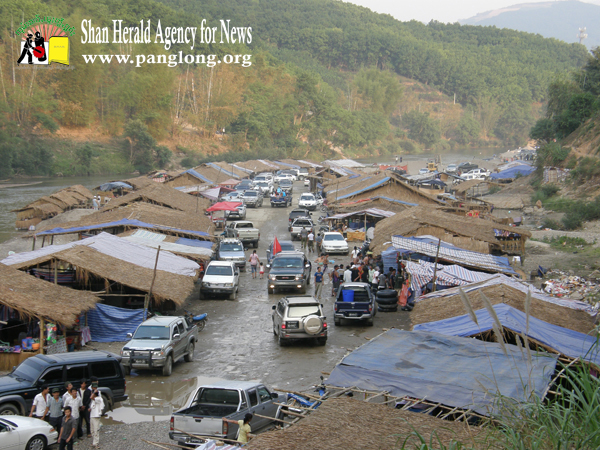The Burma Army is sending reinforcements into areas that link the Shan State Army (SSA) North with its ally the United Wa State Army (UWSA) on the eastern bank of the Salween, according to local sources.
This is in spite of the fact that both the SSA and the UWSA have signed ceasefire agreements and Naypyitaw had, on 12 July, met Wa leaders that defused the tension along the Thai-Burmese border between the two sides.

During last week, Chinese made Dong Feng six-wheelers had arrived in the Loi Khawk mountain on the west bank of the Salween in Tangyan township. “There were 6 trucks each carrying no less than 30 troops,” said Maj Naw Lake, liaison officer for the Shan State Progress Party/Shan State Army (SSPP/SSA), as the SSA North is officially known.
Another convoy of trucks had arrived at Loi Khio in Monghsu township, further south of Loi Khawk, according to a local elder. “People are worried there will be more fighting,” he said.
The SSA and the Burma Army have been playing a cat-and-mouse game further north in Namtu township. The two sides have not stopped fighting, even though the SSA had signed a ceasefire on 28 January 2012, more than 18 months ago.
“The Burma Army appears to be trying to cut the territorial links between the Wa on the east bank and the SSA, Kachin and Palaung resistance armies on the west bank,” commented a long-time border watcher from Thailand. “It is a known fact that the Wa has been supplying these groups with arms and ammo.”
There has been reports of Burma Army units moving into vital Salween crossings north of Tangyan, where the Kachin Independence Army (KIA) and the Ta’ang National Liberation Army (TNLA) are active.
Meanwhile, Burmese authorities have demanded Panghsang, the Wa headquarters, present a list of their motor vehicles, especially those with NW (Northern Wa) and SW (Southern Wa) number plates that were imported tax-free during the period when Gen Khin Nyunt was in power. “Panghsang has yet to respond,” said a Monghsat local.



